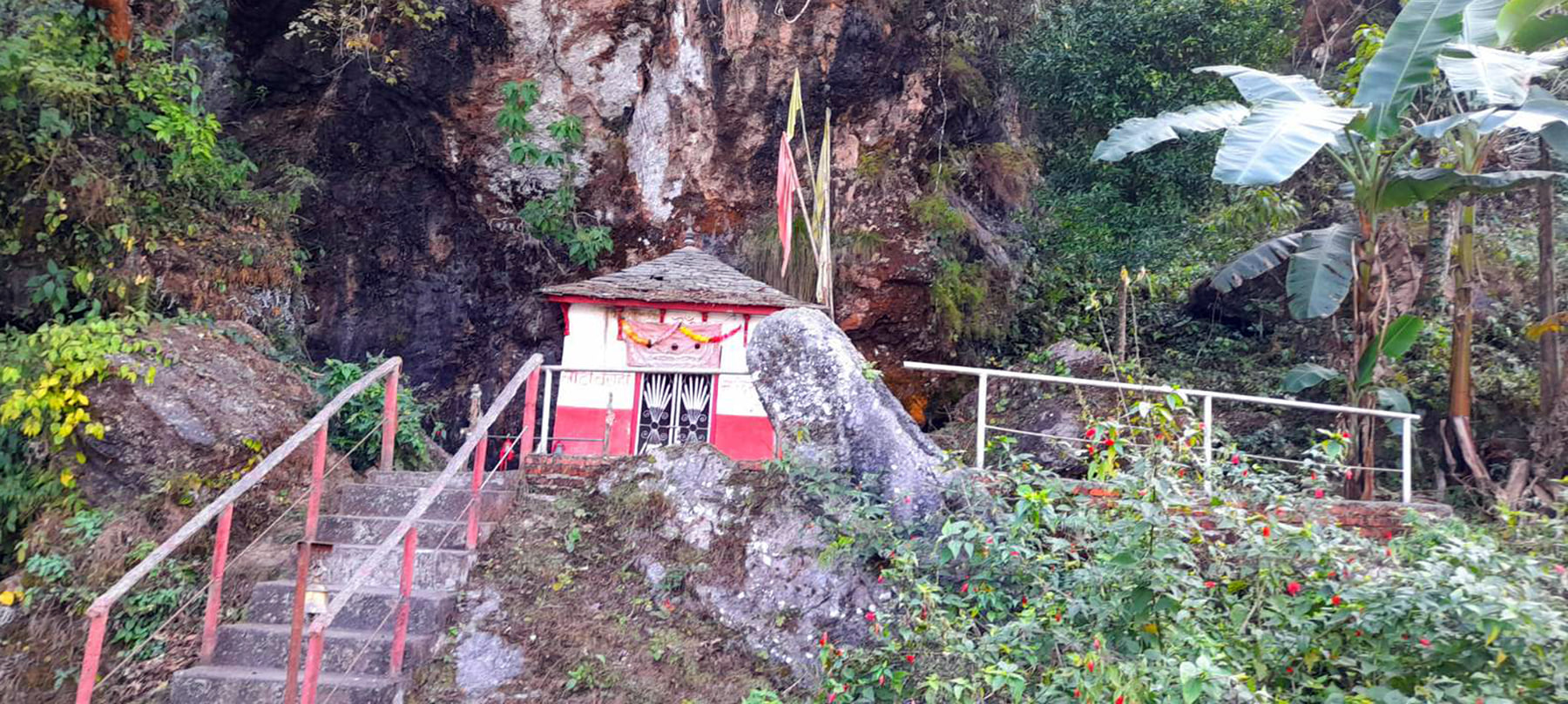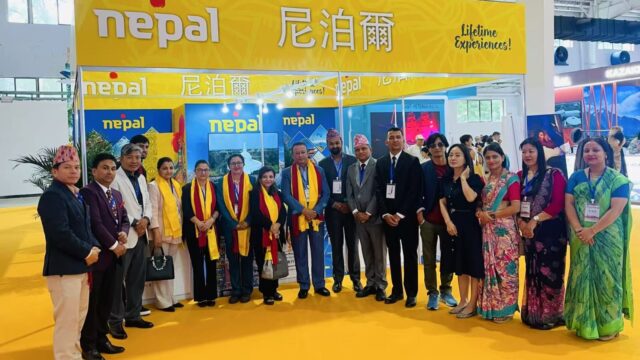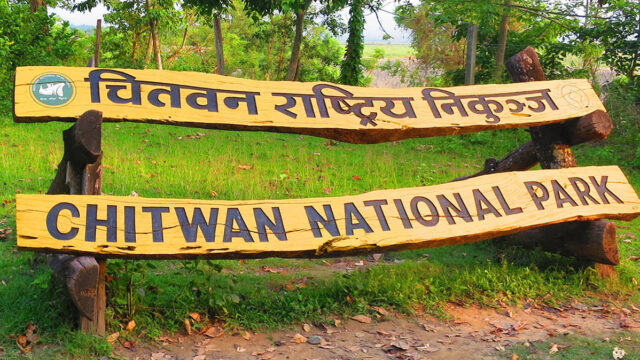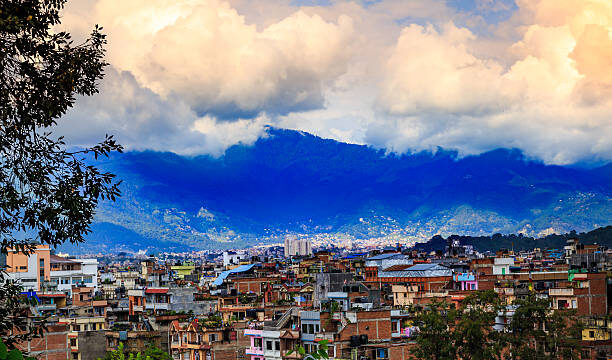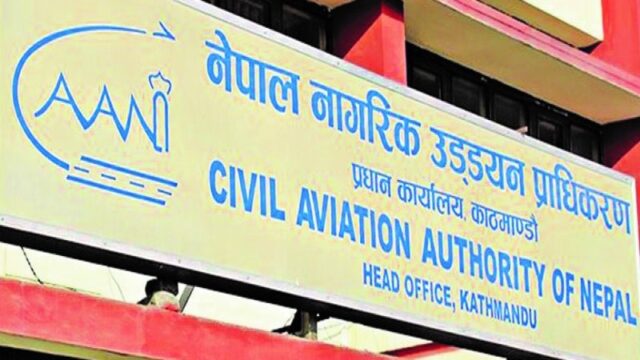The Lati Barahi Temple, located in Baidyapani Simle of Shuklagandaki Municipality-8, Tanahun, is an ancient pilgrimage site. Although worship and rituals have been conducted here for generations, the exact date of the temple’s establishment is still awaiting further research.
The presence of a natural water pond in the temple premises, which remains filled with water throughout the year, has strengthened the religious beliefs associated with the site, says resident Kul Bahadur Kumal. He explains that the temple’s uniqueness lies in the continuous flow of water from the base of the rocky corner, which never dries up even during severe droughts.
“This has been a place of devotion and worship since the time of our ancestors,” he says. “There is a belief that if a speechless child is bathed in the sacred pond, they will start speaking, which has further enhanced the temple’s significance.”
This pilgrimage site is worshiped as “Lati Barahi,” a goddess believed to grant speech. Special worship ceremonies, including sacrificial offerings, are conducted annually on the Panchami Tithi following the full moon of the Nepali month of Baishakh.
Many locals claim to have witnessed cases where children, who were unable to speak despite undergoing costly medical treatments, gained speech after being bathed in the pond and performing rituals at the temple. Social worker Shree Ram Sigdel shares his personal experience of seeing two or three families bringing their children for worship, after which the children started speaking.
Since ancient times, it has been believed that the temple surroundings should be kept clean, and people avoid drinking water near the temple due to the belief that it should remain pure. In recent years, people from various places have been coming here for special rituals and planetary worship.
Elderly locals say the place was named “Baidyapani” because traditional healers (Vaidyas) used the water for medicinal purposes. Due to the belief that children who have not developed speech will start talking after worshiping at the temple, devotees from districts like Tanahun and Kaski have been visiting in increasing numbers in recent years.
Resident Bishnu Khanal recalls that during his childhood, the site only had a simple stone idol. In recent years, the Women’s Awareness Mothers’ Group has taken the initiative to construct the Lati Barahi Temple and organize the area. Locals also believe that the occasional shaking of the ground near the sacred stone is a sign of divine energy.
Despite the temple’s significance and the belief that children gain speech after visiting, it has not received the level of publicity it deserves, says Lekhnath Tiwari, former chairman of the Kyangdi Road User Committee.
He adds that the region has been lagging due to the absence of a bridge over the Kyangdi River, but there is great potential to develop it as a religious tourism destination.
With the recent construction of a bridge over the Kyangdi River, transportation access has improved, allowing people to travel by vehicle from Dulegauda in Tanahun to Simle, Bharbise, Kokhebensi, Jarewar, and Sanke. Vehicles also now reach places like Jarewar, Chisapani, and Chinnebas.
Chudamani Khanal, president of the Nepali Congress Tanahun Constituency No. 2, emphasizes the need to highlight the potential of the Lati Barahi Temple along with the overall development of the Kyandi Valley. “Religious tourism, combined with agricultural tourism, can be promoted in this fertile land, including Baidyapani, Araundi, and other areas of Kyangdi Valley,” he states. “If we can control soil erosion along the Kyandi River and use its water for irrigation, the local people can achieve prosperity through agriculture.”
He further mentions that the region is already leading in dairy and vegetable production. If proper irrigation facilities are established, it could help reduce youth migration abroad. With the potential for fish farming, vegetable cultivation, and fruit farming, he highlights that completing the construction of the Kyangdi Bridge and improving the road to Jarewar would serve as a crucial foundation for the prosperity and development of the area.
